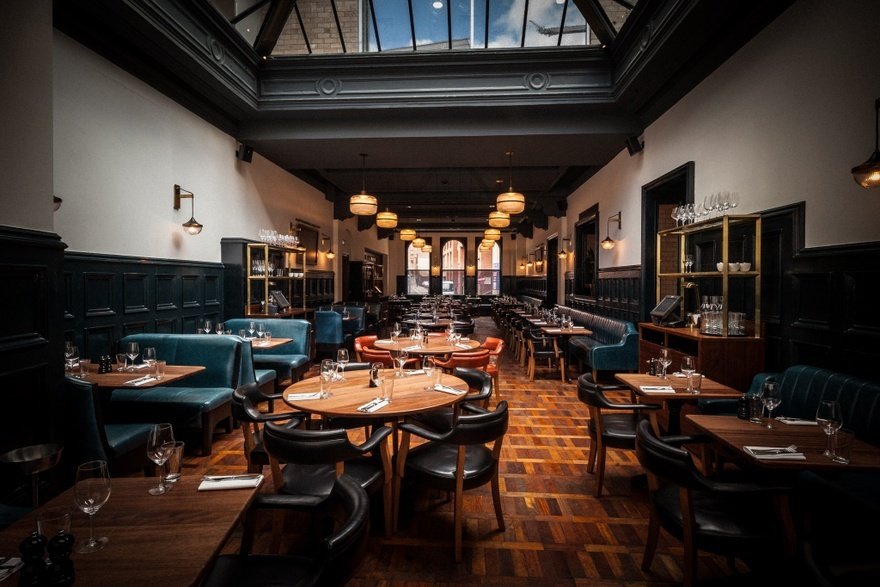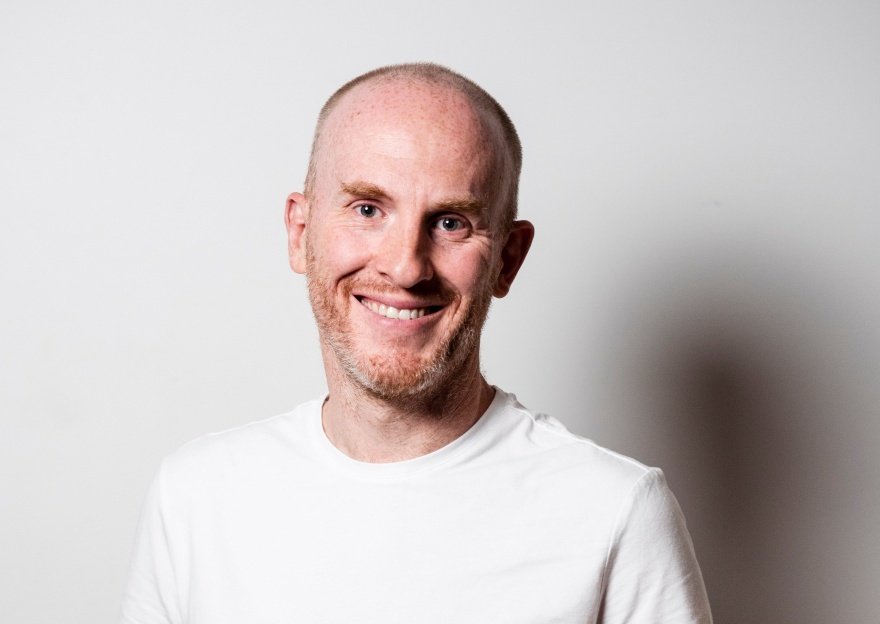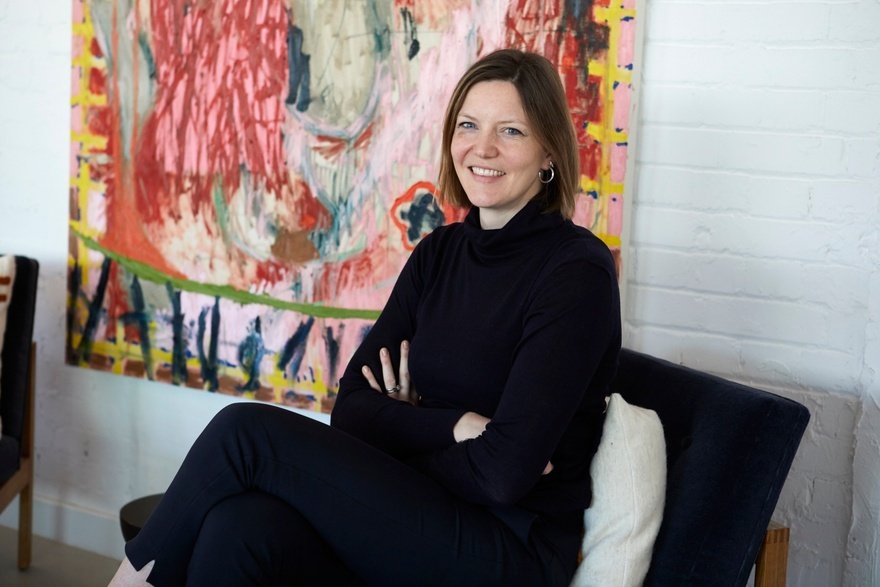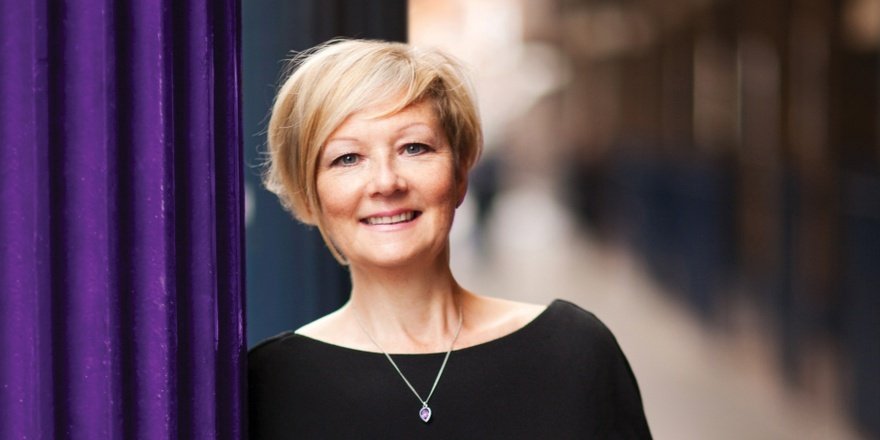Mental health has always been a concern in the high-pressured hospitality workplace, but fallout from Covid-19 means the industry is even more vulnerable as it returns to work. So what are the new challenges, and what support is out there to help both employers and employees? Rosalind Mullen reports.
Drink, drugs, anxiety, depression, suicidal thoughts – these and other mental health issues are well-documented problems in the hospitality industry. A report by the Royal Society for Public Health last year highlighted that around a quarter of workers in the industry had needed medical or psychological help, triggered by issues such as unhealthy work-life balance, unsociable shift patterns, long hours, low wages and poor job satisfaction.
To compound these problems, there is now the added pressure of returning to work after furlough in the exceptionally strange post-Covid world.
In June, mental health charity Burnt Chef Project published a survey that revealed 40% of staff were feeling uncomfortable about returning to work after furlough, with top concerns being job security, fear around catching Covid-19 and anxiety about returning to a busy workplace after time off.
Founder Kris Hall says: "The return to work [post-Covid] has been more stressful than first anticipated, as many now find themselves in a new environment with additional complexities. These include PPE requirements and an increased feeling of responsibility for the safety of the public. Everyone is having to adapt to sudden changes in business models, with decisions being made at management level to secure a financial future for the business."
Other worries include potentially having forgotten skills during lockdown and struggling with tough issues at home, such as childcare, health issues and even bereavement.
"We've seen higher levels of anxiety than the already high levels found in this industry," says Hall. "In addition, we're getting reports of physical damages to the body as a result of being out of the hospitality environment, including ligament damage, back pain and joint issues, where before there were none."
Findings from industry charity Hospitality Action highlight that uncertainty is a major factor affecting workers. "One of the biggest issues people talked about was a general feeling of loss. The loss of identity, the loss of income, the loss of all the intangibles that make a hospitality career into a way of life and not just a job," says chief executive Mark Lewis.
One of the biggest issues people talked about was a general feeling of loss. The loss of identity, the loss of income, the loss of all the intangibles that make a hospitality career into a way of life and not just a job
Hawksmoor, Manchester
This uncertainty looks set to continue, as underlined by the sudden tightening of lockdown restrictions in parts of Greater Manchester, East Lancashire and West Yorkshire.
Madeleine Geach, head of culture at restaurant group Hawksmoor, says its central Manchester site has remained open, but believes news flashes about lockdowns unsettle people.
"The main issue is coping with change and uncertainty," says Geach. "It's a relatively new issue for our staff and what happened in Manchester is an example of that," she says.
Most of the 700 staff across Hawksmoor's eight sites were furloughed during lockdown, with a handful of head office staff charged with providing employee support. They contacted every member of staff personally, which meant roughly 100 communications each. "When you have directors and senior staff doing that, it helps to connect everyone, as we've all been working from a bubble at home," says Geach.
An employee survey found that while the majority were keen to return, they were also nervous. It also highlighted that some had underlying health or childcare problems. "We have gone through each case to see how we can accommodate them. It was a big piece of work," says Geach.
Vulnerable workers remain on furlough and Geach is confident they know they won't be penalised: "We would never operate as last-back and first-out. We have their trust that they can delay coming back," she says.
This was reinforced through clear communication, which in her book is one of the most important ways to reduce employee anxiety. "I've talked to other restaurant groups where staff have found not being communicated with very hard," says Geach.
Hawksmoor's co-founder Will Beckett updated staff every week via the company's internal platform Workplace From Facebook during lockdown and this continues. "People have found that immensely reassuring. In the early days, he kept them up to date on the furlough scheme and we got waves of ‘likes' because people were so relieved to get information they could understand," says Geach, who adds that all written posts can be translated into the language of the worker at the click of a button.
The directors also use the platform to host a live video Q&A session to respond to staff concerns. "We support staff by asking them what they need to know about; telling them what's going to happen – preparing them, listening," says Geach.
We support staff by asking them what they need to know about; telling them what's going to happen – preparing them, listening
Another valuable communication tool has been the Return to Work training sessions run by the directors, including group operations manager Richard Cowell-Oakes who, as well as being on the government taskforce for restaurant guidelines, works for St John Ambulance and volunteered at NHS Nightingale.
"His is a respected voice, so it's reassuring to get that training from him rather than disseminated down from a restaurant manager," says Geach. "A minority of people are anxious about PPE and Covid, but we've communicated what we're doing to be safe. Each restaurant gets five training sessions and people are less anxious because the training builds confidence."
New channels have been created, including an anonymous email address where staff can voice worries that are then dealt with by the relevant manager, plus the assignment of Covid reps in each team, who feed concerns back to managers.
The company also provides access to professional support from Employee Assistance Programmes (EAPs). As well as being a member of Hospitality Action's EAP – which it signed up to after the 2017 London Bridge attacks – Hawksmoor also uses Unum Lifeworks, which provides practical advice with the aim of reducing stress and easing mental health issues.
She adds: "Managers also need support. Most key people have been at home furloughed and this stuff is important to them, too."
Stem + Glory, Cambridge and London
Certainly, with the expected spike in redundancies when furlough ends, HR teams will need support, particularly those in smaller companies. Louise Palmer-Masterton, founder of vegan restaurants Stem + Glory, furloughed all 35 staff during lockdown and has recently reduced the workforce by 12 people.
"We – the owners – have tried to take all the stress from being closed and keep it away from the team. We've maintained contact with everyone through furlough, and have spread positive news, not negative," she says.
The restaurant group, which has sites in Cambridge's King Street and London's Barts Square, reopened for business on 30 July and has launched an online platform for local deliveries and click-and-collect in both cities.
"It's been more like a new opening than a reopening, so there's been a lot to do. Everyone is out of the habit of stress, but they've all played a blinder getting us back open again."
The lockdown experience has shown Palmer-Masterton that working practices can and should change: "It's very noticeable that being back at work is stressful, due to the pace. We'll try to make things as easy as possible, so stress levels can stay down. We've all had a taste of another way, and we'd like to find a better balance going forward."
Preparing for what's to come
The Covid crisis could be an opportunity for the industry to press a reset button, but initially mental health issues look set to increase. Tim Etherington-Judge, founder of Healthy Hospo, says: "Lockdown has had an interesting effect on hospitality workers, with many on furlough finding they have time for themselves. We've seen improvements in sleeping habits, exercise and nutrition, alongside growing mental health issues caused by isolation, financial stress, Covid anxiety and concerns about the future."
The not-for-profit company already offers a one-to-one Wellness Mentoring support programme in partnership with Warner's Gin, but Etherington-Judge is working with consultants to put support programmes in place for what he predicts will be new challenges.
"We will see new issues emerge, which could range from ‘mask rage' to extreme Covid anxiety. We're expecting a wave of problems in October when the government furlough scheme ends and there's a risk of a huge spike in unemployment. There will also be issues around location, as the current data seems to show inner city venues struggling a lot more post-lockdown than rural venues, but this could be a positive for some people."
One big challenge will be the reversal of the pre-Covid skills shortages. With many venues yet to reopen, an increasing number closing their doors and the reduced footfall, it will become difficult for laid-off workers to find employment – plus, being forced to claim Universal Credit can have negative consequences on mental health.
"Any good employer will ensure all their staff are aware of the support networks that exist to support the industry," says Etherington-Judge. "The Drinks Trust and Hospitality Action have been working around the clock to provide financial and health support for workers who have lost their jobs because of Covid."
Any good employer will ensure that all their staff are aware of the support networks that exist to support the industry
Case study: Soho House
Emma Perfect, diversity and inclusion manager at Soho House, which employs 2,000 people in the UK, describes the past few months as "a rollercoaster".
To remove some of the initial anxiety, the company created a fund for furloughed staff in financial hardship, funded by a pay-cut from senior leaders. It also kept everyone updated through Workplace From Facebook, while teams stayed connected via Zoom.
"Overall it's bonded our teams. But I do expect to see a delayed reaction as people get out of crisis mode and start to process what they've been through," says Perfect.
Increased communication has been key to helping staff deal with necessary workplace changes. Many, for instance, now work at 80% of their regular hours and others remain on furlough due to their circumstances. Plus, Soho House members now need to book ahead for Covid safety reasons, putting an additional burden on the team.
"Our health and safety team put together a document explaining the measures that will keep everyone safe, and we've communicated that on Workplace," says Perfect. "Everyone was given additional training before returning to work and we had good feedback that they felt safe. That said, there are still some unknowns in relation to the virus and that does cause stress, particularly when government advice isn't always clear."
Soho House already has a proactive approach to staff mental health, working with two EAPs, Hospitality Action and LifeWorks, which offer staff 24/7 confidential support online or over the phone. It also works with Pilot Light to train kitchen teams in how to support mental wellbeing and recently introduced a new meditation app, Liberate, to help people of colour who may face additional stress.
Initiatives already in place include 90 mental health first aiders, trained to spot and support co-workers who are struggling, and Wellness Action Plans to help managers understand what an individual's work-related triggers might be and what can be done to support them.
"It'll be important over the next year to remind people about all this really regularly, because I think it will hit us all at different points, so it's important everyone knows the support is there when they need it," says Perfect.
Press the reset button on mental health
Ultimately, employers not only have a vested interest in supporting the wellbeing of their staff, they also have an obligation. Now is a good time to rethink the way your business works.
Hospitality Action chief executive Mark Lewis says: "Organisations do have a duty of care to protect employees from psychological harm as well as having consideration for their physical safety, so care for an employee's physical and mental wellbeing should be paramount as the hospitality industry continues to return to work."
Kris Hall, founder of Burnt Chef Project, concurs: "Employers need to start to recognise that hospitality is a tough environment for the human body and mind. We're seeing fewer new faces coming into the industry and a shorter career path, especially for chefs, which results in many leaving the industry or changing their role before the age of 40. Employers need to invest time, energy and money to make changes immediately to improve the working conditions for their staff.
"This is essential – not just in improving their lives and wellbeing, but also improving the efficiency and profitability of their business. Wouldn't it be better to have the same happy and healthy staff for two-plus years rather than to have high levels of absenteeism and a poor retention rate, giving inconsistent service levels and a high re-employment/training costs?"
He adds: "By beginning to look at and care for staff as a family and less as ‘numbers', business owners may begin to see big shifts in staff attitudes and profits."
To ensure your workforce maintains good mental health, he suggests a number of initiatives. These include:
- Providing the whole team with two days off in a row, so that they can switch off.
- Upskilling staff across the board to spread workloads and reduce demands on any one individual.
- Upskilling managers in mental health awareness so that they are better able to aid those who are struggling, rather than mishandling the situation and further exacerbating the issue.
- Adopting zero-tolerance to mental health stigma.
- Providing healthy staff meals where everyone eats together.
Support for employers and managers
Employers can get help in supporting themselves and their workforce through membership to an Employee Assistance Programme (EAP).
These include, but are not limited to, industry charity Hospitality Action's EAP, which provides employee access to a 24/7 helpline and offers counselling, parenting support and legal advice. Meanwhile, the managerial advice line enables HR teams to discuss how best to support employee wellbeing and refer individuals, with their consent, for counselling.
In response to the Covid crisis, HA is running training webinars for employers and employees on topics such as ‘how to best support teams as they return to work' and ‘employee wellbeing in the new normal'.
The EAP also offers employees support for up to six weeks post-redundancy and HA has added new content on how best to support those at risk of redundancy. In addition, it is to launch a video featuring Dr Hilary Cooke and Sean Wheeler, aimed at HR professionals and leaders who may be emotionally impacted by the prospect of implementing the widespread redundancies and restructures many businesses are already experiencing.
To find out more, email: eap@hospitalityaction.org.uk
Supporting those returning to work
People expert Purple Cubed has launched Wellbee, a platform to support the physical and mental wellbeing of employees as they return to work.
Purple Cubed says the mobile-first product provides team and individual insight leading to measurable outcomes and recommendations, which improve the working environment.
Using AI and machined learning, it provides tailored recommendations and signposts to help and advice based on the feedback it receives from employees.
Purple Cubed chief executive Jane Sunley said: "Wellbee is different because, instead of bombarding people with solutions, employees can safely and securely self-assess and then receive personalised recommendations and the right tools to help them.
"Organisations will understand exactly where they need to focus their improvement efforts with clear recommendations around ‘the how'."
How can employees support their own mental health?
- Maintain good health to help keep Covid-19 at bay and adhere to guidance around PPE.
- Check what support your employer offers in-house and talk to your manager or co-workers about concerns.
- Find out if your employer is signed up to an Employee Assistance Programme (EAP), many of which offer helplines, counselling and even immediate support post-redundancy.
If you can't access an EAP, many providers will still offer support to aid mental wellbeing:
- Hospitality Action has launched a Covid-19 Wellbeing Advice Hub, an open access resource covering topics from virus anxiety and home schooling to wellbeing while on furlough, staying financially fit, coping with bereavement and returning to work. Its Lockdown Lessons films feature people talking about their own mental health triggers and advice on managing symptoms. www.hospitalityaction.org.uk/advice/ HA also runs a 24/7 helpline on 0808 802 0282.
- Healthy Hospo offers a free one-to-one Wellness Mentoring support programme in collaboration with Warner's Distillery. www.healthyhospo.com/1-1-wellness-mentoring-sessions/
Financial struggles, due to reduced hours/wages or unexpected expenses as a result of Covid-19, can also harm mental wellbeing:
- You may be eligible to apply for one of Hospitality Action's financial grants.www.hospitalityaction.org.uk/get-help/
- The charity Turn2us offers a Benefits Calculator to help you find out which welfare benefits you might be entitled to and a Grants Search to identify charitable funds. www.turn2us.org.uk
- The Drinks Trust offers a helpline and has recently enhanced its wellness programmes and financial support. www.drinkstrust.org.uk 0800 915 4610
Useful organisations
Burnt Chef Project www.theburntchefproject.com
The Drinks Trust www.thedrinkstrust.org.uk
Healthy Hospo www.healthyhospo.com
Hospitality Action www.hospitalityaction.org.uk
Liberate www.liberatemeditation.com
LifeWorks www.lifeworks.com
Pilot Light Campaign www.pilotlightcampaign.co.uk
Unum www.unum.co.uk
Continue reading
You need to be a premium member to view this. Subscribe from just 99p per week.
Already subscribed? Log In















